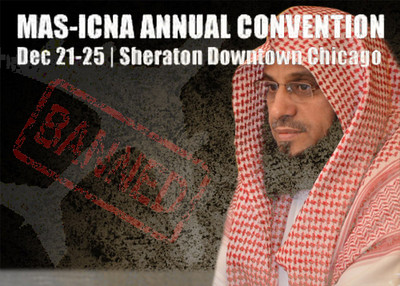by Yoram Ettinger
On the eve of the
January 22, 2013 Israeli election, the Israeli public demonstrates more
realism than its politicians. Israelis highlight security imperatives
when responding to reality-driven polls, which pose questions based on
the stormy Arab Winter and not on the mirage of the Arab Spring.
Increasingly, Israelis
recognize that — in the Middle East — bolstered security constitutes a
solid base for survival and for the pursuit of peace. They realize that
the pursuit of peace, by lowering the threshold of security, could
jeopardize survival, as well as the slim chance for peace.
Notwithstanding the
overwhelmingly dovish Israeli media and academia, most Israelis — Right,
Center and Left — have concluded that security-driven peace supersedes
peace-driven security.
In December 2012, a
most thorough and detailed poll was conducted by one of the deans of
Israeli pollsters, Mina Tzemach, on behalf of the Jerusalem Center for
Public Affairs. The poll demonstrates that Israelis respond to real
local and regional developments — more than to wishful thinking — when
shaping positions on the peace process, security requirements, land for
peace, the two-state-solution and Iran.
Such positions are
directly impacted by the 20-year track record of the 1993 Oslo Accords:
an unprecedented Israeli gesture met by unprecedented Palestinian hate
education, terrorism and noncompliance. Israeli opinions are also
influenced by the current turbulence, unpredictability, unreliability,
treachery and instability on the Arab street. The Israeli state of mind
is also shaped by the violent Palestinian response (thousands of
missiles launched at Israel) to the 2005 Israeli disengagement from the
Gaza Strip — a tormenting, painful concession of uprooting 25 thriving
Jewish communities.
According to the
December Mina Tzemach (Dahaf Polling Institute) poll, most Israelis
assume that Palestinians are concerned about the existence — and not the
size — of Israel, and therefore are very skeptical about the
land-for-peace formula. Most Israelis do not trust Palestinian
compliance with agreements, and therefore are dubious about the
two-state solution, which they increasingly consider a two-state
delusion.
For instance, 76% (83%
among Israeli Jews) believe that an Israeli retreat to the pre-1967
sliver along the Mediterranean would not satisfy the Palestinians or
other Arabs. Only 22% (15% among Israeli Jews) assume that such a
concession would produce an end to the conflict. About 74% of Israelis
are convinced that strategic depth — a code word for Judea and Samaria —
is pertinent to Israel’s national security. Only 21% discount the
importance of strategic depth. Fully 66% disapprove (and 29% approve) a
withdrawal to the pre-1967 lines in return for a peace accord with the
Palestinians and all Arab countries. About 63% are against a withdrawal
to the pre-1967 lines with minor modifications.
A ratio of 65:33
opposes the repartitioning of Jerusalem in the context of a peace
accord; 65:31 reject a withdrawal from the Jordan Valley; 68:28 refuse
evacuation of Ariel and western Samaria; 72:22 insist on retaining
control over the blocs of Jewish settlements; 73:18 disapprove
relinquishing control over the Judea and Samaria mountains that dominate
Ben-Gurion International Airport; 67:22 insist that Israel retains
control of Highway 443, which connects Jerusalem to the coastal plain
via the West Bank.
Only 20% of the Israeli
public assumes that the recent developments on the Arab street are
irrelevant to the Arab/Palestinian-Israeli conflict. Only 21% maintains
that these events warrant an acceleration of the peace process.
About 52% — compared
with 49% in 2005 — consider secure boundaries superior to peace,
compared with 36% who view peace as the prerequisite to security.
Most Israelis trust
only the Israel Defense Forces to protect the country. For example, only
39% assume that Israel can rely on the U.S. military during an
emergency. About 68% oppose the stationing of foreign troops — including
U.S. troops — in the Jordan Valley. Only 26% would support such a
deployment.
About 68% do not
believe that sanctions constitute an effective option against Iran; 53%
presume that the U.S. will not resort to the military option to prevent
Iran’s nuclearization; 53% support an Israeli military pre-emption
against Iran if the U.S. fails to pre-empt.
This most comprehensive
Mina Tzemach poll highlights the Israeli public as top heavy on realism
and low on wishful-thinking. Most Israelis do not indulge in the New
Middle East Delusion, March of Democracy or the Facebook and Youth
Revolution; they brace themselves for the Real Middle East and its clear
and present threats. It is a rare state of mind among Western
democracies, enhancing Israel’s power-projection and Israel’s role as
the beachhead of the Free World in the economically and militarily
critical Middle East. It is a source of optimism.
Yoram Ettinger
Source: http://www.israelhayom.com/site/newsletter_opinion.php?id=3136
Copyright - Original materials copyright (c) by the authors.




 The
head of the Council on American-Islamic Relations (CAIR) vows to
complain to U.S. Department of Homeland Security officials after they
The
head of the Council on American-Islamic Relations (CAIR) vows to
complain to U.S. Department of Homeland Security officials after they